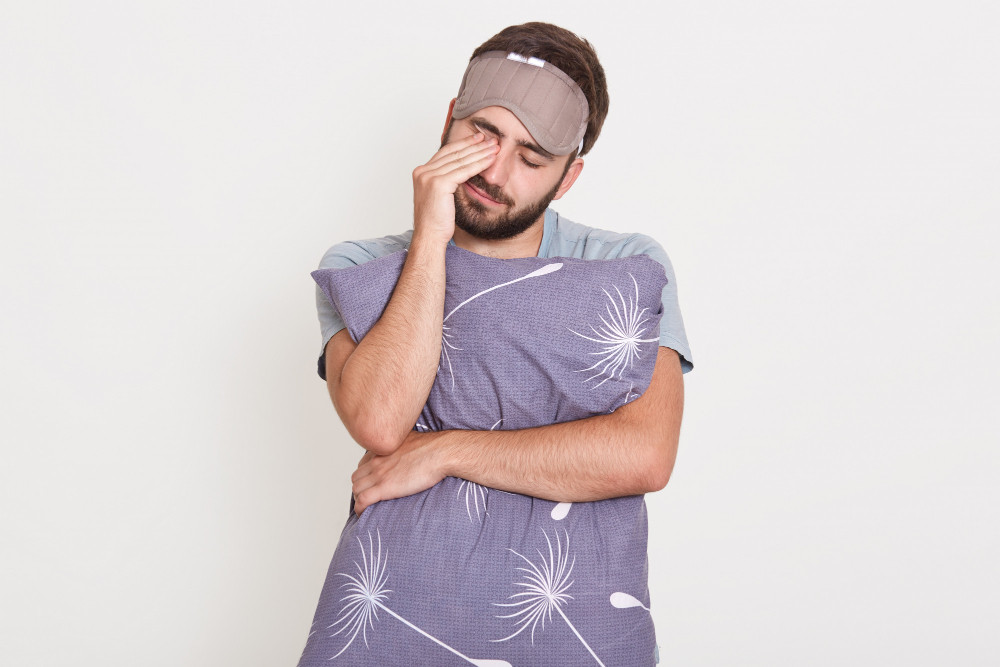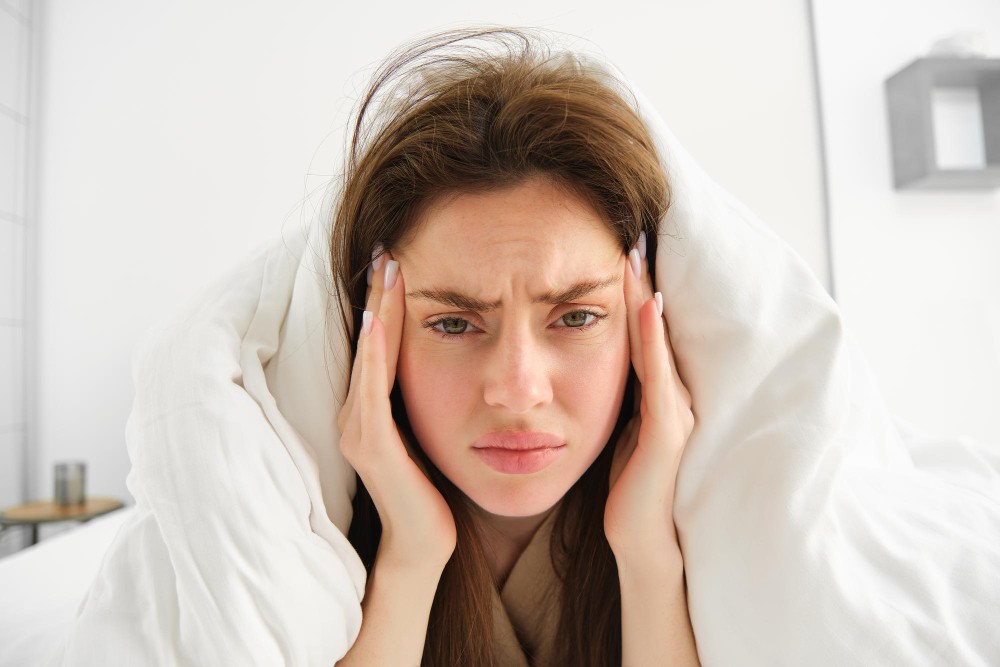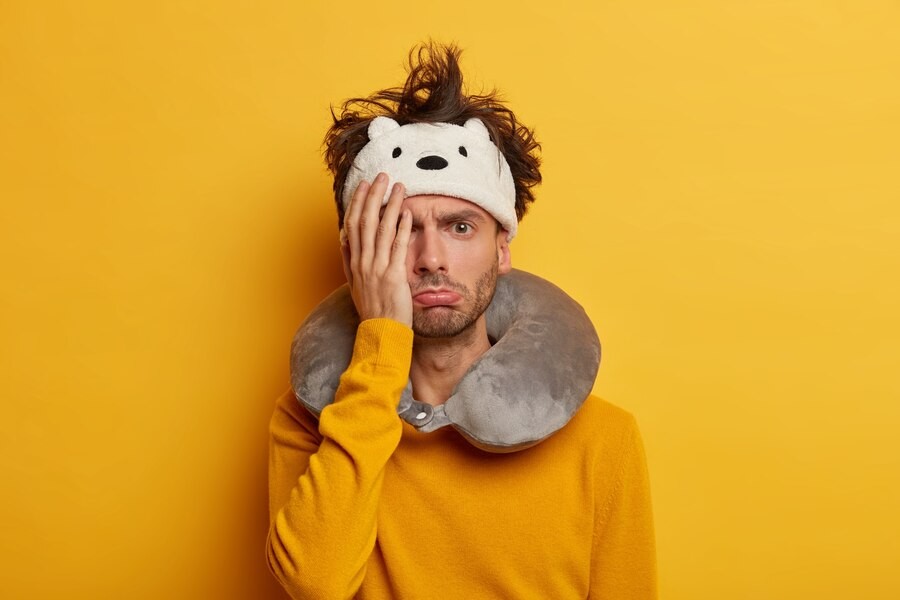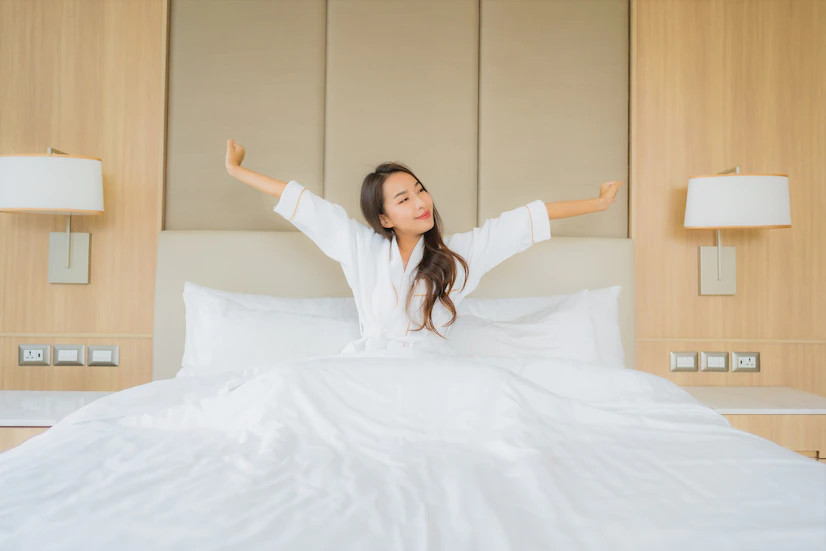Getting enough rest is essential for our well-being. When your body feels tired after a long day of activities, it's a sign that it needs to recharge its batteries. Sleep is the only way to replace lost energy and rejuvenate your mind and body. Therefore, it's vital to prioritize our rest and make sure we get enough sleep every night to stay healthy and energized. But there are times when even though you feel very tired, you have trouble sleeping. Why is this happening?
Why is it hard to sleep even when you're tired?
When your body feels tired, you might assume that falling asleep will be easy and restful. However, some people experience the opposite. They feel very tired, but find it difficult to fall asleep properly. According to Healthline, this condition can be caused by various factors, including:
Circadian rhythm disorder
Circadian rhythm is the body's biological clock that regulates many things such as body temperature, appetite and hunger, when you are sleepy, asleep and awake within a 24-hour period. This rhythm is affected by light exposure. Thus, at night when there is less light exposure, your brain triggers the production of the hormone melatonin which makes you sleepy. Then when the sun starts to rise in the morning, the brain tells the body it's time to wake up.
A disruption in your circadian rhythm can make you feel dizzy, sleepy and disoriented. In addition, circadian rhythm disruption has also been linked to a variety of sleep problems and other conditions such as depression.
If you feel tired but have trouble sleeping, you may have a circadian rhythm disorder that can cause delayed sleep phase syndrome (DSPS). This condition is usually characterized by falling asleep 2 hours or more later than your normal bedtime, making it difficult to wake up on time the next morning.
Teenagers and young adults mostly experience this condition. For instance, according to Healthline, around 7-16% of adolescents and young adults experience this problem, while adults only experience this condition in 1% of the total population.
The body is too tired
Doing strenuous activities before bed can disrupt your sleep schedule. Doing high-intensity exercise less than an hour before bedtime can spur your heart and increase your body temperature, making it take longer to fall asleep. Sleep quality can also become worse.
There are many studies on the benefits of regular exercise and how it relates to good sleep quality. However, it is not recommended to do strenuous exercise less than an hour before bedtime. If you want to exercise at night, the recommended exercises include yoga, leisurely cycling, or jogging.
Stress and anxiety
If you're having trouble sleeping, check to see if there are any symptoms of stress and anxiety that you're experiencing. If you have something on your mind that interferes with your sleep or have other stresses and fears that occur unconsciously, it can also make falling asleep difficult.
Any other health issues
Difficulty sleeping with fatigue can also be caused by other health problems such as restless leg syndrome, sleep apnea, and others. If you experience insomnia and other symptoms, you should immediately consult a doctor.
Tips for overcoming sleeplessness
Lack of sleep can compromise your stamina and daily activities. Too much sleep deprivation can also lower your immune system, making you more susceptible to diseases. For those of you who are having trouble sleeping, below are some tips that you can do:
1. Have a Healthy Sleep Habit
Establish a healthy daily sleep routine, by going to bed and waking up simultaneously. Ensure you get 8 hours of sleep daily or adjust according to your age and activity level. Avoid heavy eating and drinking too much at night and put away electronics before bed.
If you like to take naps, you should take no more than 20-30 minutes and nap simultaneously so that your body can anticipate it. Napping for too long during the day can make you stay awake longer at night.
2. Create a More Conducive Sleeping Environment
Turn off your bedroom lights at bedtime for a good night's sleep. Remove distracting items from your bed and use comfortable, clean sheets and bedding. Also, limit gadgets before bed as they can interfere with restful sleep.
Some people often experience being tired but having trouble sleeping. If the above methods cannot improve your condition, you should immediately consult a doctor for treatment.
If you need medical advice or consultation, you can either visit a doctor or use the consultation features available in the Ai Care application by downloading the Ai Care application from the App Store or Play Store.
Looking for more information about health tips, first aid, and home remedies? Click here!
- dr. Yuliana Inosensia
Risher, B. (2022). Why Am I So Tired, but Can’t Sleep?. Available from: https://www.healthline.com/health/healthy-sleep/tired-but-cant-sleep#circadian-rhythm
Help Guide. Sleep Disorders and Problems. Available from: https://www.helpguide.org/articles/sleep/sleep-disorders-and-problems.htm#
Suni, E. (2022). What To Do When You Can’t Sleep. Available from: https://www.sleepfoundation.org/insomnia/treatment/what-do-when-you-cant-sleep
WebMD. Understanding Sleep Problems -- The Basics. Available from: https://www.webmd.com/sleep-disorders/understanding-sleep-problems-basics
Nunez, K. (2019). What Is Delayed Sleep Phase Syndrome?. Available from: https://www.healthline.com/health/sleep-deprivation/delayed-sleep-phase-syndrome












